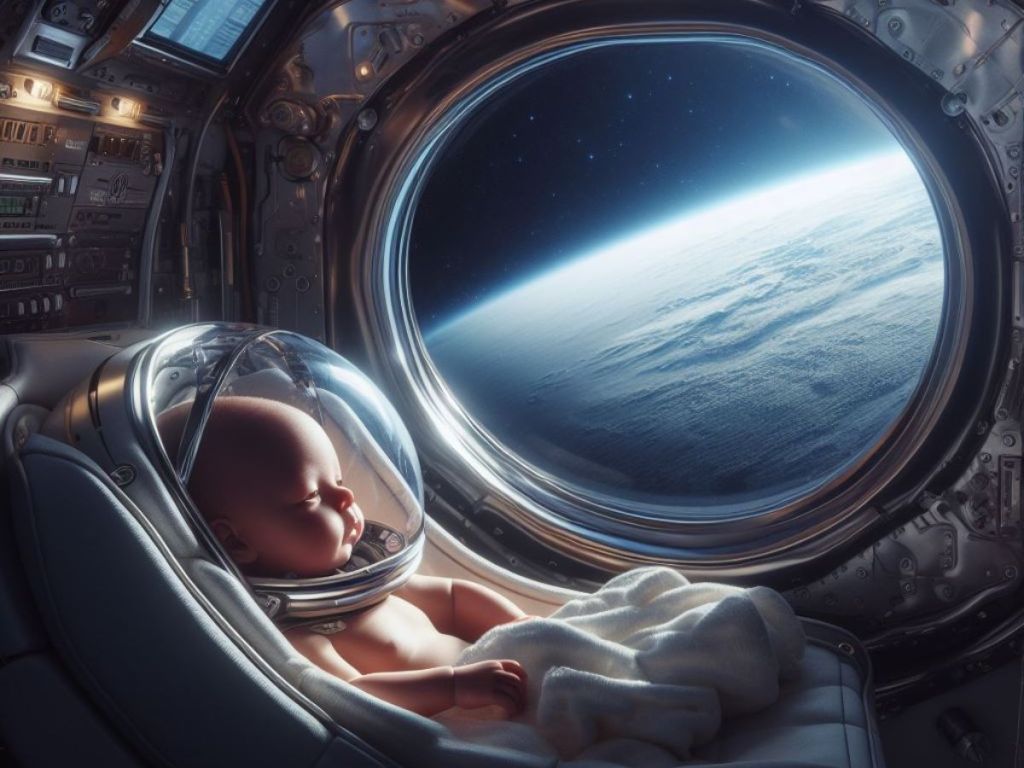Spaceborn United, a Dutch Biotech startup, has a wild vision: To help humans have babies in space. This isn’t just an idea. The experiment will take place in low Earth orbit at the end of 2024.
The company is testing its ‘space-embryo-incubator’, a device that can fertilise and grow embryos in low Earth orbit.
The challenges of space reproduction are huge. Even just having sex in space in zero gravity is almost unworkable. And that is not even mentioning the dangers of radiation and developmental abnormalities on any baby that might be conceived.
Spaceborn United CEO, Egbert Edelbroek, says that human reproduction in space is necessary if people are ever to live beyond Earth.
“Humanity needs a backup plan,” he said. “If you want to be a sustainable species, you want to be a multiplanetary species.”
Space embryo incubator
Spaceborn’s technology is central to this plan. They will start with mammal embryos. The ‘space-embryo-incubator’ is a device designed to hold male and female sex cells — sperm and eggs — and combine them in low Earth orbit. The experiment sits inside a container that is only the size of a shoebox.
After nearly a week of growth, the embryo will be cryogenically frozen. It is then sent back to terra firma, where it will be examined. Ideally, according to Spaceborn United, it could then be transferred into a surrogate mother and carried to full term.
The embryos need to be frozen to help them weather re-entering Earth’s atmosphere, which is traumatic to life.
Aliens babies and gravity
While animal embryos will be used at first, there is a plan to eventually use human embryos. The combination of low gravity and high radiation will exert unknown effects on these cells.
Previous studies show that a low-gravity situation can have an effect on the division of developing embryonic stem cells, their differentiation into various cell types, and their ability to defend against DNA damage.
However, these investigations have primarily taken place in cultured cell dishes, leaving uncertainty about how the findings would apply to the cells within a living organism or a human.
Radiation
Another significant concern is radiation. Beyond Earth’s magnetosphere, a spacecraft and its occupants are exposed to galactic cosmic radiation (GCR), which has the potential to induce DNA mutations and increase the risk of cancer.
For an embryo whose cells are rapidly dividing, this kind of interference could be disastrous.
In low Earth orbit, such as aboard the International Space Station (ISS), the radiation levels are still relatively low, but they are still higher than on Earth.
Astronauts on the ISS receive over ten times the radiation than what is naturally occurring on Earth.
Spaceborn’s device will be shielded with a layer of water to reduce the radiation exposure, but it will not eliminate it completely.

Will there be alien babies?
Spaceborn’s ultimate goal is to support human conception and birth in space, a step that is inevitable if humans are to colonise other planets.
But this raises a host of questions. What would be the citizenship status of a baby born in space? How would the health and well-being of the mother and the child be ensured in such a hostile environment? What would be the long-term effects of living in space on the human body and mind? And is it ethical to even put all of these problems onto a baby who has no say in the matter?
The company says it is not planning to conduct any human experiments without proper approval and consent from the relevant authorities and participants.
But we as a species need to accept that human reproduction in space will be a reality one day. Is this the point where we prepare for our interstellar future?



